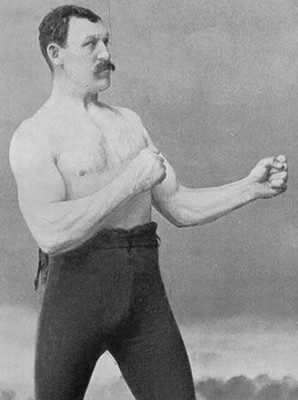[Originally written in August 2008 and posted with the client's permission]
Many people have read this piece and encouraged me to post it publicly. So, by popular demand... It is an email I posted to a client near the end of their completion of the Personal Evolution Program, and in it I address a need for approval, ego development, the purpose and motivation for personal evolution...and the distinction between self-worth and value, and more... Your self-worth is a settled matter if you will accept it as such. Enjoy.
::: ::: :::
Now back to you.
I was thinking about the approval thing. But first--you have come a long way. So stop, take a deep breath, turn around towards the sunset and enjoy the vista. You deserve it.
"The mountain we climb in Personal Evolution is a bit like a mirage while hiking/climbing a mountain. You could stop now and camp for the night--or say, "forget this", it and go back down the mountainside.
Buuuuutt, you can also see there is a reachable summit. So you choose to go further--yet...when you reach what you thought would be the summit, there is yet another summit that materializes out of the mists. And this goes on forever. There is no omega point except when you choose to simply stop and rest. Unless and until you decide you are done.
Each of us have that choice every day.
For some, we still consciously choose to continue to deepen our depths--and plumb just behind them. There is no end or bottom to the depth -- there are only unplumbed depths. For others, they have achieved a high enough peak, that there is no motivation--no real-life reason--to climb the next. And there are others I will not list in the interests of time. I choose--consciously--to evolve further when I should or must--that is when my business or financial or relational results are inhibited by some aspect of myself. Otherwise, I am pretty darned content with where I am at-BUT I still need to have constant attention on where I need to be for others in the context in which I want to move with greater velocity--or frankly, sometimes, ANY velocity.
I urge you to make the same or a similar real world criteria as you become more and more comfortable with you you are...and as you come to full acceptance of yourself, there is a pitfall of not caring what others think--and disregarding their feedback. Care what others think in practical terms--and care deeply--as it fosters results. However, do not care about their opinions and judgments of you as a personal matter. That is--think about the practical results and adjust based on feedback, but know that as an internally validated man, the matter of your self-worth is settled. The question of the value you bring to people and the world in this context or that context, well, that is never settled as it depends on too many variables [each individuals expectations and sensibilities, your skill and competence in the domain, your sensitivities/awareness when adjustments are needed, market forces, etc.]. But that is a separate practical matter.
The personal: your self-worth, is a settled matter. It is...well, pick your preference/metaphor: it is good. It is priceless. It is worth-full. It is Spirit manifest. It is divine.
As for the seeking of approval-that is obviously pretending as if your worth could be determined externally. It can not. Whether you realize it yet or not, you still have to accept the opinion of others--good, bad, right, wrong--to have their opinions matter. In other words, you have the ultimate choice still--even if you are not exercising it to as full a degree as you will enjoy in the future.
But why even do this work? What does it make possible? Why spend the time, energy, and the--at times--grueling work of dis-identification, detachment, and internalizing validity when you notice it as external? Why forgo the feel good and the short term false ego pump of compliments?
In a word: Freedom. Freedom from what?
Freedom from the ebbs and flows of the opinions and judgments of others. Why is this important? So you can gather feedback, without the moral and emotional cloud of personal meaning. Here is the challenge with tying your valuation to another's opinions: you are not only cast about from one end to the other, AND the problem with that is that people react from and interpret through their stage of egoic, emotional, and values meme stage of development. There will be patterns and probabilities, and all feedback is valid for them, but there is only so much contorting you can engage in, and stay sane and centered, and more importantly, live authentically--true to yourself.
Additionally, believe me, as someone who has had people tell me I am a god [literally] on more than one occasion and at times, had people tell me I was an a**hole and the devil's spawn [literally] I came to realize that no matter what they say, the truth is somewhere in the middle, and their acknowledgments and their judgments are worth only one thing: getting specifics around those experiences [I did X Y and Z in A context and they felt B emotion as a result] for the purpose of adjusting my behavior for improved results.
Their characterizations are worthless except as crude pointers to their stage of development because, again, we interpret through and react and respond from our stage of development And even then, I have to gauge how valuable it is -- determined solely by how large a percentage of people are at that stage and would react/interpret the same way.
All feedback is valid--and everyone's emotional experience is valid as it is and to be left untouched unless requested otherwise. However, not all feedback is valuable.
Now, what I can not say is where the line is between the idea that they are responsible for their own emotional experience--and you are not--and where you are responsible for your impact on others and the results you garner. That is a line I have yet to determine for myself after nearly a decade of inquiry. I do know that I tend to move more and more towards having room for the emotional reactions I create in others-sometimes by simply walking through the room, or making a benign comment about my schedule, or not noticing someone in a room I am in--having space for that and having them feel valid without my trying to adjust their experience is a skill I am still developing and only in the last year and a half feel fully competent at. And I get it right about 65% of the time.
Circling back--the thing to remember is that you are already determining your own worth, by agreeing or disagreeing with those who assess you as good/bad or some variation. You still have to buy into their perspective. And since you are the ultimate decider, decide now, that irrespective of the value assessments they are making and the validity of the feedback, the matter of your self-worth is settled.
We were told a lie as children--something about original sin. It is more accurate to say we were born with universal innocence. And imagine, the preciousness and the innocence of a blameless child. At your core...that is you irrespective of any behaviors that are not aligned--YOU, at your core, are precious and pure, and have a hologram of divinity that you are reflecting and projecting.
To think otherwise is an error--a mistake--and nothing more.
In Service and in Evolution,
Jason



